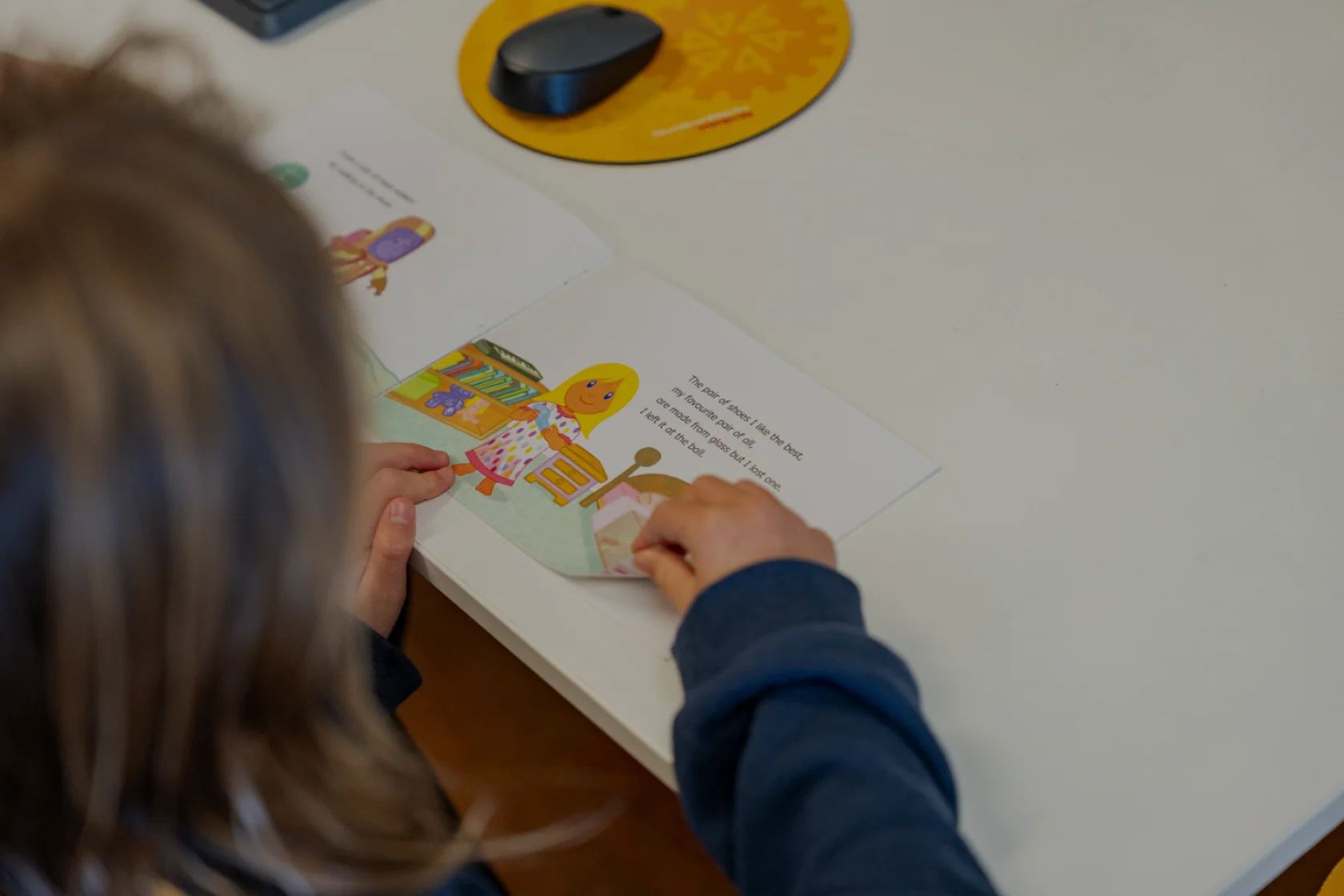21st April 2025
How to Overcome Challenges in Maths and English
As parents, one of the most rewarding aspects of your child’s education is watching them grow in confidence and skill. However, when challenges arise in core subjects like Maths and English, it’s natural for both students and parents to feel stressed. Whether it's struggling with fractions or grappling with grammar, these hurdles can feel overwhelming, especially as exams or assessments approach.
The key to overcoming these obstacles isn’t about pushing harder or expecting perfection. It’s about offering practical support, cultivating a growth mindset, and creating a positive environment for learning. This blog will share easy-to-follow advice that works for all parents and children, regardless of age or learning stage. The tips are designed to help your child build a solid foundation, increase their confidence, and feel ready to take on any challenge.
Break it Down into Manageable Steps
In maths, large problems can often feel intimidating, and the same goes for English when faced with complex writing assignments or long reading exercises. The first thing to do is break down big tasks into smaller, manageable parts. This helps reduce anxiety and gives your child a clear path forward.
Practical tip: When working through a problem or exercise, encourage your child to take it one step at a time. In maths, for example, show them how to identify the different parts of the problem (such as understanding the question, finding key numbers, and applying a formula). In English, help them break down a writing task into brainstorming, outlining, drafting, and editing stages.
Create a Calm and Positive Learning Space
A cluttered or noisy environment can easily disrupt focus, leading to frustration and a lack of motivation. The learning space should be a dedicated area free from distractions, where your child feels safe and supported.
Practical tip: Set up a designated study area with all the necessary tools, such as pens, paper, a calculator, a dictionary, and even motivational quotes on the wall. Make sure this space is quiet, well-lit, and organised. You may want to add a comfortable chair, some calming music (if your child prefers it), and a timer to keep study sessions on track.
Encourage a Growth Mindset
The way your child views challenges can significantly impact their ability to overcome them. Encouraging a growth mindset - the belief that intelligence and abilities can be developed through effort and practice, is essential.
Practical tip: Instead of focusing solely on grades, praise your child for their effort, perseverance, and improvement. When they make a mistake, don’t treat it as a failure. Instead, use it as an opportunity to learn. For instance, say things like, “You didn’t get it right this time, but look at what you learned! Let’s try again.”
Make Learning Fun with Games and Activities
Learning doesn’t have to feel like a chore. When you incorporate games and activities into study time, your child will likely be more engaged and excited about the material. Whether it's maths or English, there are plenty of fun ways to reinforce skills without the pressure of traditional studying.
Practical tip: For maths, you can use board games like Monopoly, where they can practise addition and subtraction, or card games that involve strategy. For English, try word search puzzles, crossword games, or even creating a “story dice” game to spark creativity. There are also many educational apps and websites designed to make learning enjoyable.
Be Patient and Avoid Negative Pressure
Children often internalise their struggles and may feel discouraged if they don’t see immediate progress. As a parent, it’s crucial to remain patient and understanding. Avoid placing excessive pressure on your child to be perfect or to perform beyond their abilities.
Practical tip: Acknowledge the effort your child is putting in, and celebrate their achievements, no matter how small. If your child is feeling frustrated, remind them that mistakes are part of the learning process. Keep the atmosphere light, and be sure to offer words of encouragement regularly. For example, “I can see you’re working hard, and that’s what matters the most!”
Use Real-World Connections to Reinforce Learning
Sometimes, connecting classroom concepts to real-life situations can make them easier to grasp. For both maths and English, this can help your child see the relevance of what they are learning and how it applies to the world around them.
Practical tip: In maths, involve your child in real-world activities like grocery shopping, budgeting, or cooking. These activities require measuring, counting, and understanding fractions, all of which can boost their confidence in maths. For English, encourage them to write letters to family members, keep a journal, or even write short stories based on their experiences.
Talk About Mistakes Openly
Mistakes are inevitable, but how your child responds to them is what matters most. If your child struggles with failure, it’s important to create an open and supportive dialogue about their challenges. By talking through mistakes together, you can help them learn from them instead of feeling discouraged.
Practical tip: When your child gets something wrong, ask them to explain their thought process. This helps identify where they went wrong and allows them to see how they can improve. For example, in maths, ask, “What steps did you take to solve this? Let’s see where we might have missed something.” In English, discuss how they can rewrite a sentence or revise their ideas to make the writing stronger.
Stay Calm and Manage Your Own Stress
As a parent, your own attitude toward studying and exams can impact your child’s mindset. If you’re stressed, anxious, or rushing them to “get it right,” your child may internalise those feelings.
Practical tip: Stay calm and model good stress management for your child. Show them that exams are just one part of their learning journey and that it’s okay not to be perfect. Create a relaxed atmosphere around learning, and encourage breaks to avoid burnout.
Conclusion
Helping your child overcome challenges in maths and English is about offering them the right tools, mindset, and support. With patience, regular practice, and a positive attitude, your child can develop the skills and confidence they need to succeed in these subjects - not just for exams, but for the rest of their academic journey.
It’s also important not to hesitate in seeking external support when needed. At NumberWorks’nWords, we are truly passionate about making a positive impact on children’s lives and are here to help. Our experienced tutors in both maths and English work closely with your child’s school curriculum, ensuring that what they learn in the classroom aligns with the support they receive at one of our centres. If this sounds like something you’d like to explore, simply click this link to book a free, no-obligation learning assessment for your child. We look forward to welcoming you soon.
More news articles
3rd February 2026

How NumberWorks’nWords Helps Children Reset After the Holidays
Read more18th January 2026

How to Reset Routines After the Christmas Holidays
Read more5th December 2025

How to Prevent the Summer Learning Slide
Read more24th November 2025

Are Children Falling Out of Love with Reading?
Read more